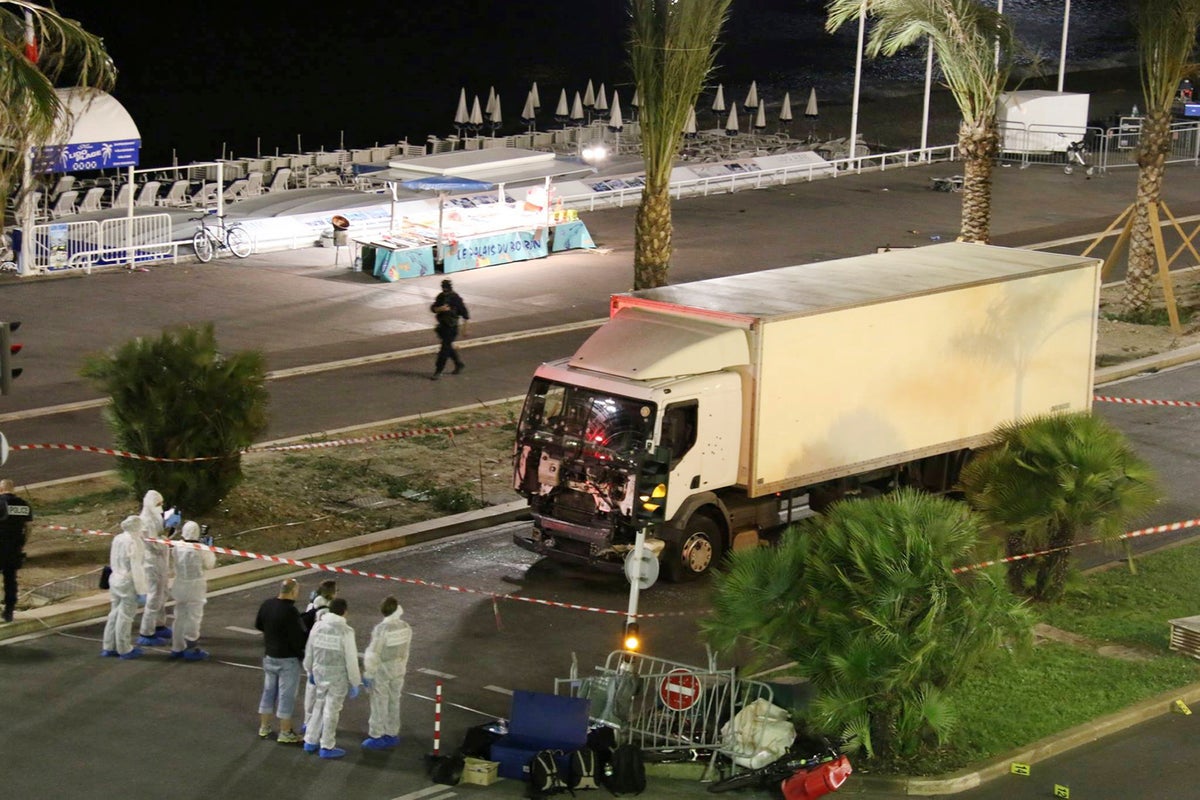
Eight people accused of assisting an attacker who drove a truck into crowds of people six years ago in Nice went on trial at a special terrorism court in France on Monday.
On Bastille Day 2016, Mohamed Lahouaiej Bouhlel was shot dead by police after he killed 86 people who were strolling along the Promenade des Anglais in the city to celebrate the national holiday.
Shortly after a fireworks display ended, the truck careered through the crowds for two kilometres (about 1.25 miles). The final death toll included 15 children and teenagers and 33 foreign nationals. Some 450 people were injured.
The Islamic State (IS) claimed responsibility for the attack, but French prosecutors said that, while Bouhlel was inspired by the group, investigators found no proof that IS planned it.
Bouhlel, a 31-year-old Tunisian with French residency, is considered solely responsible for the deaths.
On Monday, seven people accused of assisting him were in court and the eighth – who is in detention in Tunisia – is being tried in absentia after Tunisian authorities hadn’t responded to a French judicial request.
The court proceedings in Paris will go on until December when a verdict is expected.
The proceedings will be broadcast live to the Acropolis Convention Centre in Nice for those who cannot travel to Paris, and audio of the trial will also be available online with a 30-minute delay.
Survivors and bereaved will give evidence and relive the horrors of the night of 14 July, 2016.
Veronique Marchand, whose husband was killed, said at the court that she’s still haunted by a “constant replay of the night in slow motion, every detail of it.”
She added: “I feel as if I’m watching this tape that was recorded and that it just keeps happening.”
Danielle Leechailler said she has suffered emotional damage from witnessing the attack, and that she and other survivors want justice.
But, with the perpetrator dead, some of the bereaved do not expect to get justice from the trial.
Gerard Chelma, a lawyer for some of the victims’ families, said: “Our clients expect everything and nothing from the trial.
“Some feel [the trial] will be useless. Others are hoping for convictions and as much attention as there was during the trial of the Paris attacks.”
Three of the eight suspects on trial have been charged with terrorist conspiracy for alleged links to Bouhlel.
Five others face other criminal charges, including for allegedly providing arms to the assailant.
If convicted, they face prison sentences ranging from five years to life.







